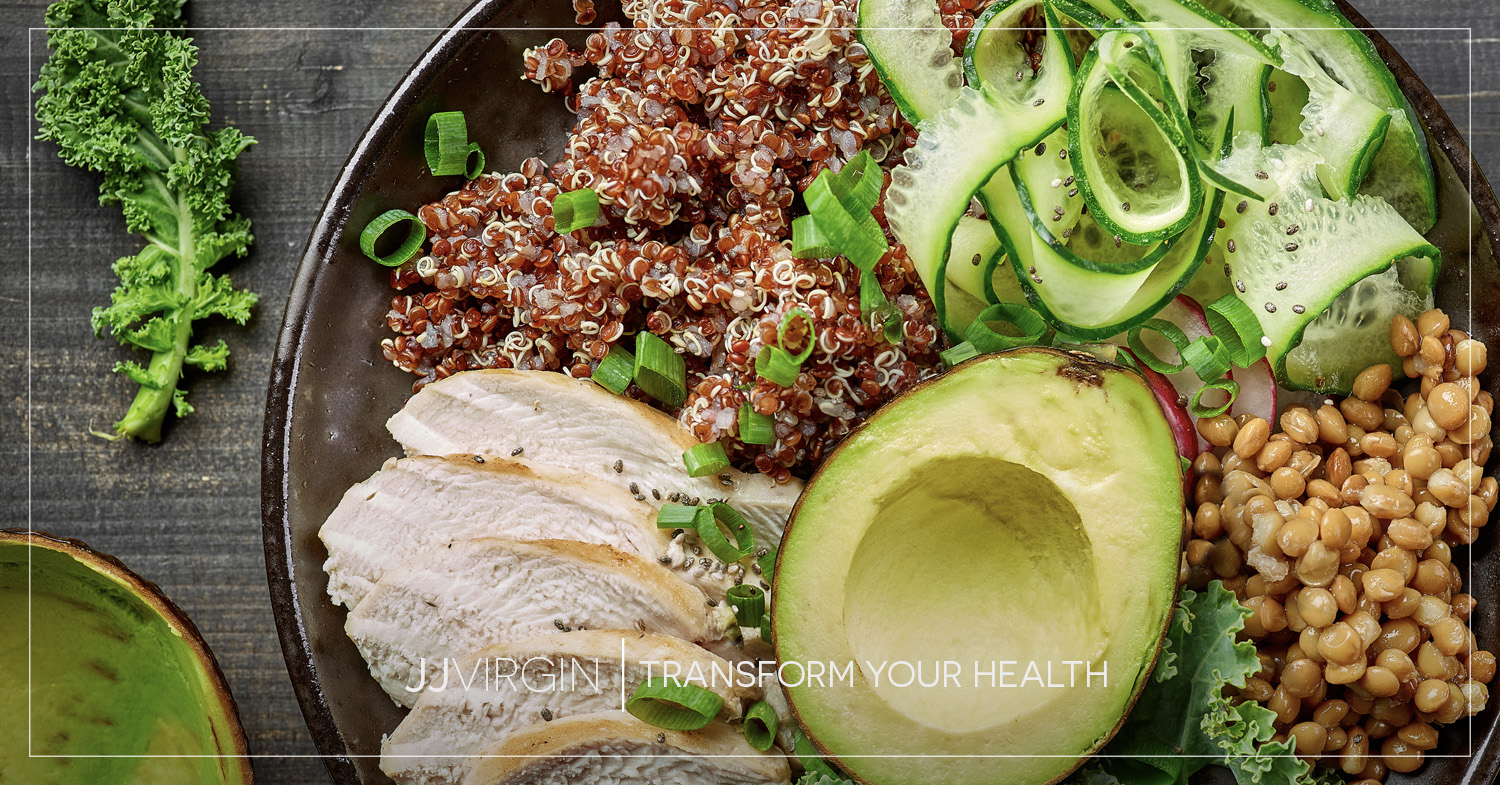Want a strong immune system, reduce your risk of disease, lower inflammation levels, and be the best fat burner? You’ll want to optimize gut health… which starts at the end of your fork!
Eating gut-healthy foods is crucial because your gut contains an entire ecosystem of trillions of microbes that play a major role in your health.
If you don’t take care of your gut microbiome, long-term imbalances can compromise your intestinal lining, triggering a condition known as leaky gut syndrome. 1
Leaky gut means partly digested food and toxins escape into your bloodstream, causing your body to create an immune response that leads to inflammation.
As that inflammation persists, it can result in system-wide responses, including allergies and autoimmune disease. 2 Those are serious consequences we all want to avoid! So, what can you do?
No matter what your personal goals are, the end destination is always the same: To feel better than you ever have. My Ultimate Health Roadmap provides short, actionable steps you can take RIGHT NOW to be the best version of you. The guide is FREE, and you can only get it here.
Eating Right for Your Gut Microbiome
To help repair the damage, it’s critical to eat anti-inflammatory foods with nutrients to heal and soothe your gut. And to replenish your healthy gut flora and prevent future digestive problems, it’s important to include plenty of probiotic and prebiotic-rich foods in your diet.
Probiotics are the “good guys” you want to have in your microbiome, while prebiotics feed your healthy bacteria to keep your gut thriving.
My top seven picks below include anti-inflammatory foods that are ideal for healing your digestive tract, as well as foods packed with probiotics and prebiotics to help strengthen your gut microbiome.
Be sure to add these 7 yummy foods to the menu…
- Apples Apples are full of prebiotics and pectin, a natural anti-inflammatory that’s excellent for healing and soothing the gut. Try them in Baked Apples with Cinnamon Oatmeal Crumble.
- Salmon and fatty freshwater fish This fish gives you a megadose of omega-3s, an incredible natural anti-inflammatory – just be sure they’re wild-caught, not farmed. (I get mine from Vital Choice Seafood.)
- Non-dairy fermented foods Foods like sauerkraut, kimchi, and unsweetened coconut milk yogurt are full of pre- and probiotics that help replenish your gut microbiome.
- Freshly ground flaxseed Flaxseed contains both great prebiotics and anti-inflammatory omega-3s, and it’s super simple to stir a couple of tablespoons into your morning smoothie or oatmeal.
- Coconut oil Coconut oil is a proven and powerful natural antimicrobial that can help fight the overgrowth of yeast or unhealthy bacteria in your gut. (Find out more about coconut oil’s powerful health benefits HERE.)
- Dark chocolate Cacao beans are rich in prebiotics, but most people don’t realize dark chocolate is also full of probiotics – it’s actually a fermented food because of how the cacao beans are processed. I love it in Chocolate Avocado Mousse with Cacao Nibs.
- Bone broth The collagen and amino acids like glycine and glutamine in bone broth make it ideal for helping heal your gut. Get my favorite beef bone broth recipe.
Great gut health starts with the foods on your plate. When you include these powerful foods in your diet, you’ll be well on your way to fantastic gut health!
The views in this blog by JJ Virgin should never be used as a substitute for professional medical advice. Please work with a healthcare practitioner concerning any medical problem or concern. The information here is not intended to diagnose, treat, or prevent any disease or condition. Statements contained here have not been evaluated by the Food and Drug Administration.
*These statements have not been evaluated by the Food and Drug Administration. This product is not intended to diagnose, treat, cure, or prevent any disease.
References
1 https://www.ncbi.nlm.nih.gov/pmc/articles/PMC4604320/
2 https://www.ncbi.nlm.nih.gov/pubmed/21248165






